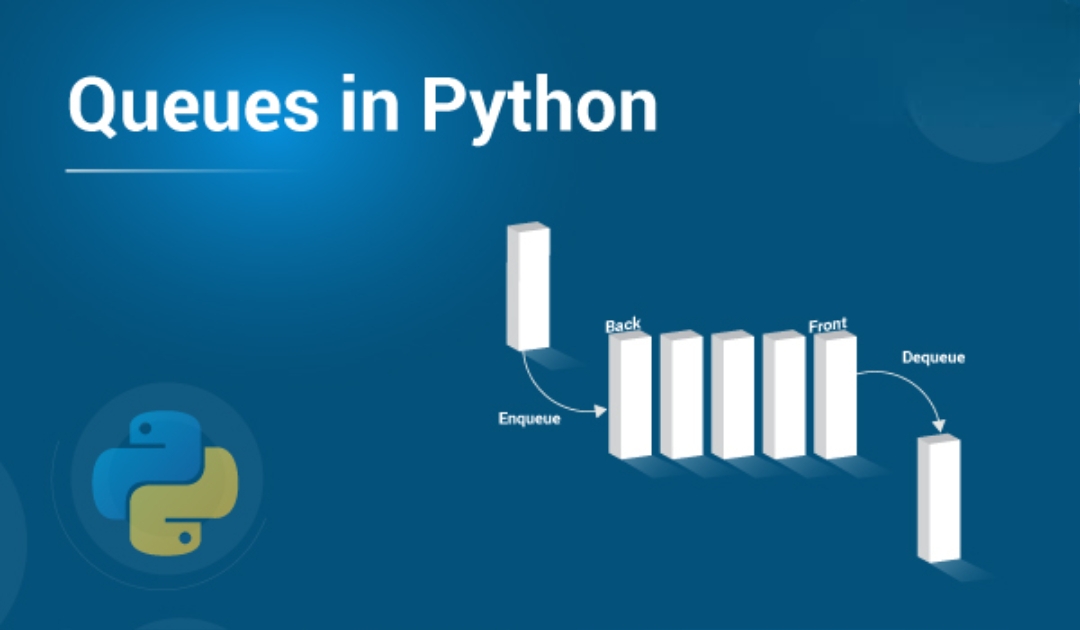Mastering Queues in Python: Everything Developers Need to Know

When building efficient, secure, and scalable applications, queues are an essential concept every developer should understand. In Python, queues help manage data flow, improve performance, and keep your application running smoothly whether you’re working on a large enterprise platform or a fast-moving startup product.
If you’re a business owner or project manager looking to hire Python developers, understanding how queues work can help you communicate better with your tech team and ensure your project is built on solid foundations.
Step 1: Understand What a Queue Is
A queue is like a real-life waiting line first in, first out (FIFO). This means the first item added is the first to be processed. Python offers multiple ways to implement queues for different needs, from built-in libraries like queue.Queue to collections.deque.
Step 2: Know Why Queues Matter for Your Project
Queues aren’t just for “big tech” they’re essential for:
-
Handling tasks in order
-
Improving application speed
-
Managing background jobs efficiently
A skilled Python Web Development Company will often use queues to prevent performance bottlenecks in your software.
Step 3: Choose the Right Queue Type
Python provides:
-
queue.Queue– Thread-safe, good for multi-threading -
collections.deque– Lightweight and fast -
multiprocessing.Queue– Great for parallel processing
If you’re working with a Python Software Development Company, ask which queue type they’ll use and why it can make a huge difference in performance.
Step 4: Keep It Simple
Don’t over-engineer. A straightforward queue system is easier to maintain and scale. Business owners often prefer simplicity for long-term project cost savings.
Step 5: Use Queues for Task Scheduling
Queues are ideal for:
-
Processing large datasets in batches
-
Managing user requests in real-time apps
-
Sending notifications or emails in the background
When you hire Python developers, check if they can integrate queues into your system for smoother automation.
Step 6: Handle Errors Gracefully
Queues can fail if tasks crash. Good developers:
-
Log every error
-
Retry failed tasks
-
Avoid losing data during failures
This is where experienced Python development services prove their worth they plan for failure, not just success.
Step 7: Secure Your Queue System
Security is key. Make sure:
-
Data is encrypted if sensitive
-
Access is limited to authorized services
-
Regular performance checks are in place
A reputable Python Web Development Company will ensure your queues are not only fast but also secure.
Step 8: Monitor and Optimize
Track how many tasks are pending, how fast they’re processed, and any slowdowns. This helps you plan for scaling your business operations without downtime.
Conclusion
Mastering queues in Python isn’t just for developers it’s for anyone serious about building reliable, scalable, and secure software. By understanding the basics, you’ll make smarter decisions, communicate better with your tech team, and keep your projects running efficiently.
If you’re ready to bring these best practices into your next project, consider partnering with an experienced Python Software Development Company that knows how to leverage queues for performance and security. Hire Python developers who understand the balance between technical excellence and business needs and watch your software perform at its best.
- Questions and Answers
- Opinion
- Motivational and Inspiring Story
- Technology
- True & Inspiring Quotes
- Live and Let live
- Focus
- Art
- Causes
- Crafts
- Dance
- Drinks
- Film/Movie
- Fitness
- Food
- Jogos
- Gardening
- Health
- Início
- Literature
- Music
- Networking
- Outro
- Party
- Religion
- Shopping
- Sports
- Theater
- Wellness
- News
- Culture

